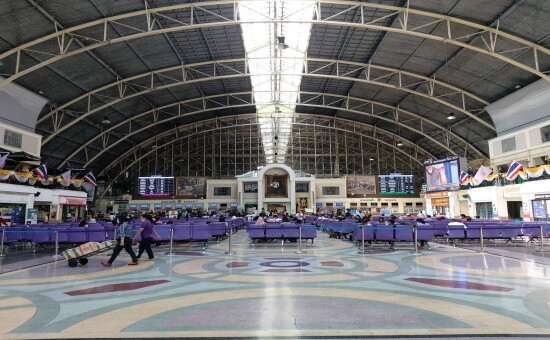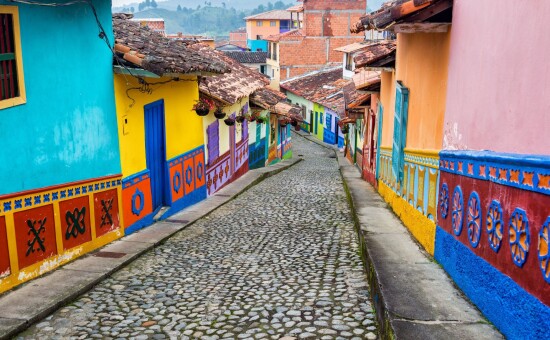How-to Guide for Crossing the Ecuador-Peru Border
Crossing international borders is tricky. We have you covered with all the information you need to safely navigate the Ecuador-Peru border.
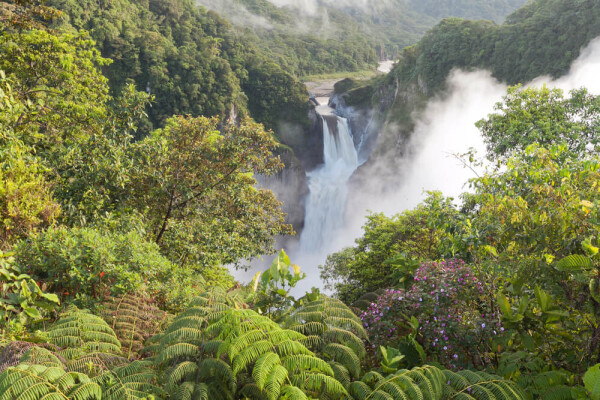
The Ecuador Peru border in South America stretches for approximately 1,529 km (950 miles) from the Pacific Ocean in the west to the Amazon rainforest in the east.
It is no surprise that when planning a trip to South America, you will want to visit both countries. But how and where do you cross the border?
Below, we’ve compiled all the necessary information, from documentation to fees and border locations, so you can feel like a well-trained expert before even setting foot in South America.
Documentation Needed for Crossing the Ecuador-Peru Border
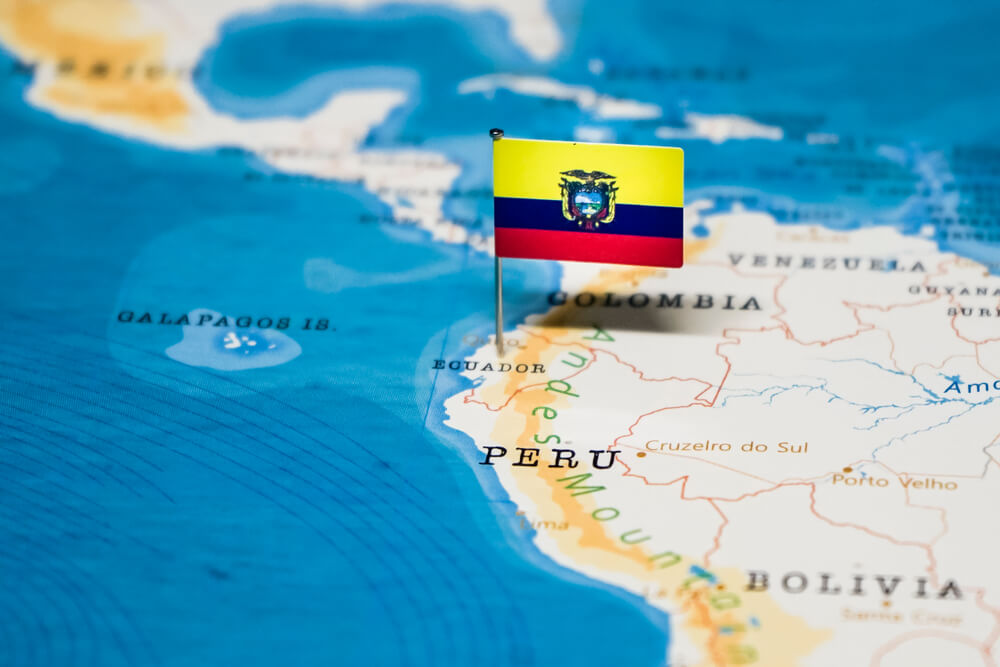
Before you start planning your border crossing, it’s essential to be aware of any documentation you may require.
Important Disclaimer: Keep in mind it is always best to check with the local embassy prior to your departure/arrival. Things can change at a moment’s notice, and you need to be prepared.
Below is a list of essential items:
- A current passport with at least six months of validity left.
- Vaccination Certificate
- Both Ecuador and Peru issue 90-day visas on arrival for most nationalities.
The Three Main Border Crossing Locations
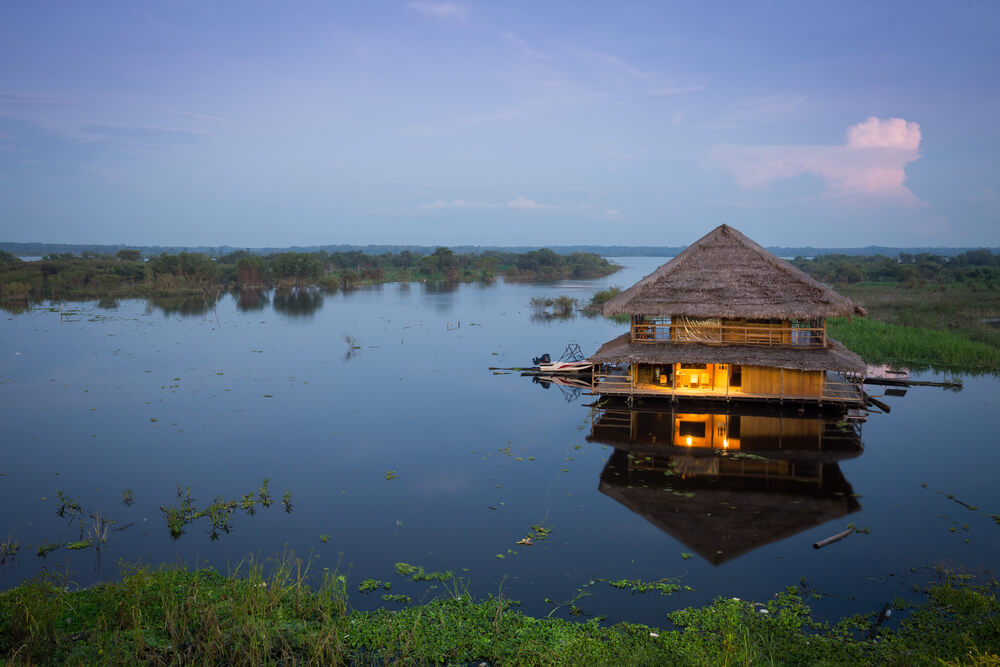
No matter which of the two countries you are departing from/arriving in, there are three main border crossings.
Choosing one will likely come down to what city you are starting from. Below is a summary:
- Aguas Verdes (from Guayaquil or Cuenca, Ecuador to Tumbes, Peru) – The westernmost border crossing near the coast.
- La Tina (from Cuenca, Ecuador to Sullana, Peru) – A journey through the mountains on the west.
- La Balsa (from Loja, Ecuador to Jaen, Peru) – Scenic inland route through the jungle.
It’s time to depart Ecuador to Peru…
Border One: Aguas Verdes Border

Aguas Verdes is the fastest and most convenient border crossing to get to Tumbes and other north-coast beach towns in Peru.
Open/Hours/Availability:
24 hours, 7 days a week, other than national holidays.
Option One: Direct transfer From Ecuador to Peru
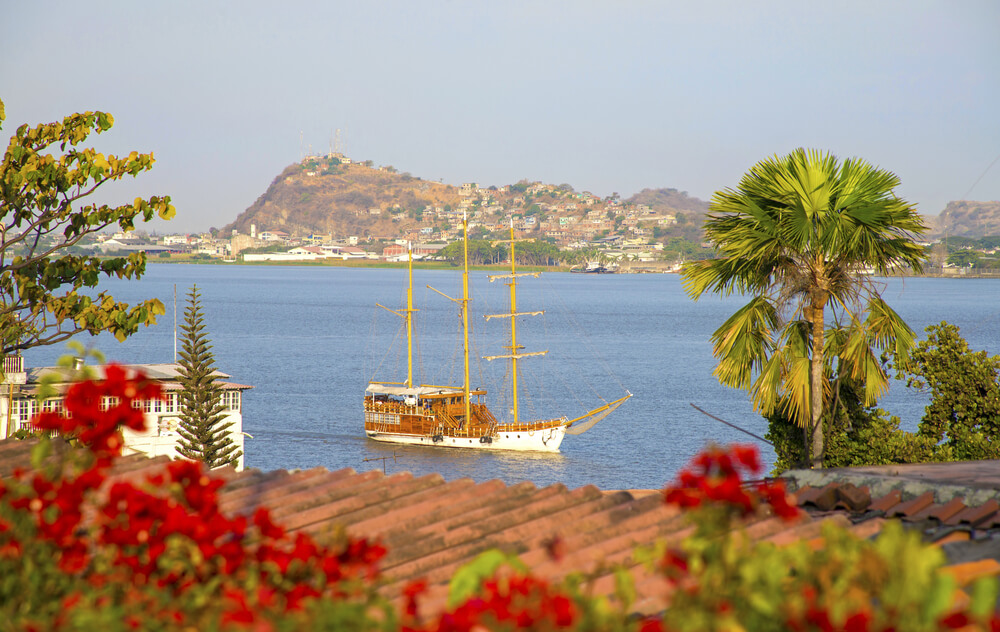
Thankfully, direct transportation between the two countries will make your life a whole lot easier.
It’s much simpler than the second option but also more expensive.
Step one: Book your transfer departing from the town of Guayaquil
Book a spot on an international bus in advance at the bus station in Guayaquil, as this option has become more popular over the years.
Or, book online from Guayaquil to Tumbes by minivan or car.
Otherwise, there are routes between Guayaquil and Mancora or Guayaquil and Piura.
Step Two: Arrive at the border
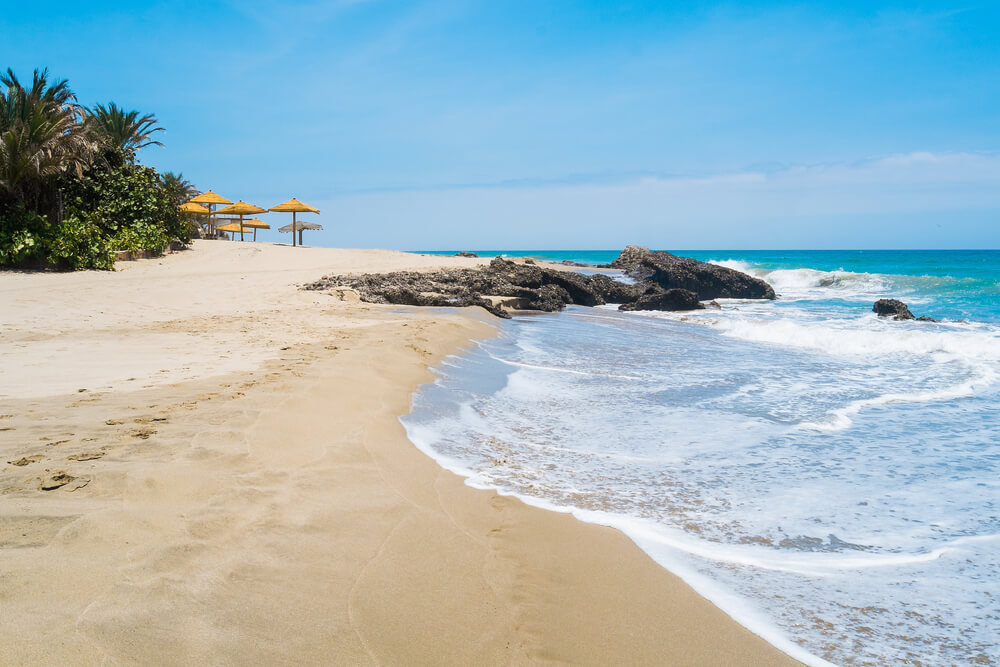
Your departure from Ecuador and entry into Peru are done in the same office.
The first thing you have to do is queue for the health control. Proof of three Covid vaccinations is required to enter Peru.
Afterward, make your way to the immigration office.
To leave Ecuador, your passport will be stamped by an officer. Then, you will queue to have your passport stamped as entry into Peru.
For US, UK and Australian citizens, there is no exit fee.
Step three: Board the bus again and depart for Tumbes
Congrats! You have now stepped foot into the country of Peru.
The bus will transport you to the nearby town of Tumbes, a gateway to many places in Peru, including Lima.
Option Two: Making your own way across the border
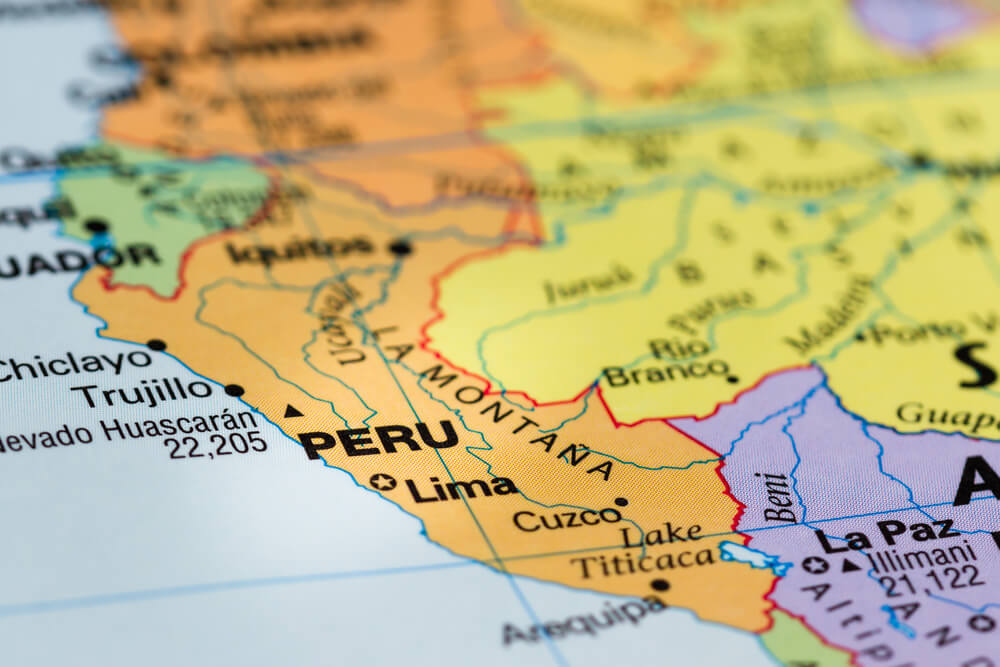
If you are on a tight budget, this option may require buses and taxis to get to the border. However, you will end up saving money.
Step one: Travel to the town of Huaquillas
If you’re coming from Cuenca, a touristy town in the Ecuadorian Andes, it’s approximately 217km (135 miles) away.
The easiest way is by local bus, which will be between four and five hours. If you have time, head to the bus station in Cuenca the day before to arrange your ticket, as they can book out in advance. The good news is that multiple buses are operating throughout the day. You can even choose whether you want to depart during the day or in the evening.
Pro tip: You are looking for the Terminal Terrestre bus station northeast of the city center.
Step two: Arrive in Huaquillas and take a taxi to the border
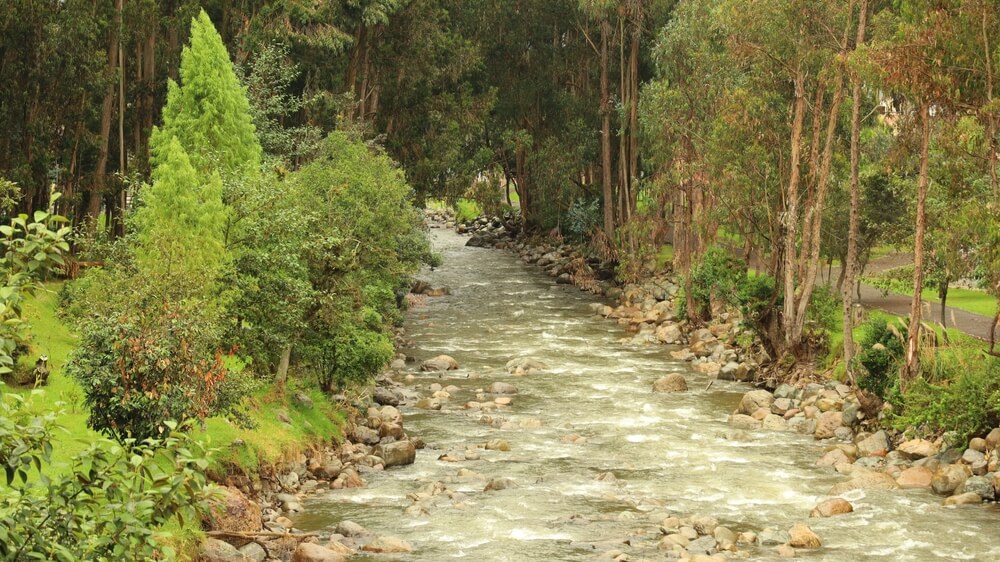
Once you arrive at the bus station in Huaquillas, it is time to make your way to the border.
The easiest option is to take a taxi—but be warned, they may try to rip you off.
If you arrive late in the evening, it’s best to spend the night to make the crossing fresh in the morning and during daylight hours (even though it is open 24 hours).
Step three: Arrive at the border
Once you arrive at the border, you must queue for health control before having your passport checked by both countries’ immigration officials.
Step four: Take a taxi or bus to the town of Tumbes

You are now in Peru. Hooray!
It will be easy to find a taxi or bus departing for Tumbes, about 25 km (15.5 miles) from the border.
From there, you can take public transport to other areas of Peru, such as Mancora, Organos or Piura.
Border Two: La Tina Border

The La Tina border is used to travel to destinations in Peru such as Piura, Chiclayo, Trujillo and Huanchaco.
Open/Hours/Availability:
7 days a week from 8 am to 6 pm (closed for lunch from 12 pm to 2 pm).
Step one: Travel from Cuenca to Loja
Similar to the bus that departs from Cuenca to the Aguas Verdes border, there is also an option to travel to the La Tina border.
Head to the Terminal Terrestre and book your seat on the bus. It’s best to arrive early in the morning so you can reach Loja by the evening.
If you have some time to spare, get some soles (Peruvian currency) before departure.
The travel time to Loja is approximately six hours by bus. You can also travel by private car from Cuenca to Loja, which only takes four hours.
Step two: Depart from Loja to the border town of Macará
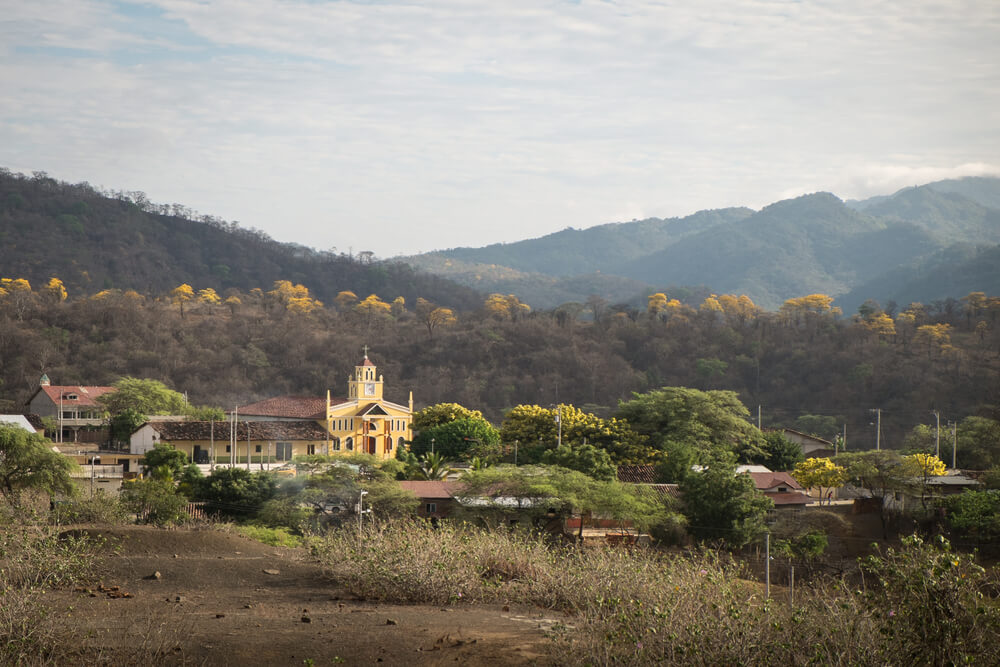
Once you arrive in Loja, it’s time to jump on one more bus before arriving at the border.
The bus takes about four hours but is prepared to wait as the departure times vary.
There is a couple of cafes and restaurants on the second floor of the bus terminal if you are hungry and need something to drink while you wait.
Step three: Arrive at the border
Now that you have arrived at the border, it is time to leave Ecuador and enter Peru.
You will be required to show your passport to get your exit stamp.
Once done, you will walk 200 meters before crossing a short bridge, indicating you are officially in Peru. Yahoo!
At this point, you will receive a Peruvian entry stamp in your passport.
Step four: Travel from La Tina to Sullana
The small community of La Tina is only a short distance away. The best idea is to take a taxi there before boarding a local bus to Sullana, a larger town with more transportation options.
You can expect the bus to take from 1.5 hours to 2 hours.
From this point, the world is your oyster. You will be able to reserve bus tickets to anywhere in Peru.
Border Three: La Balsa Border
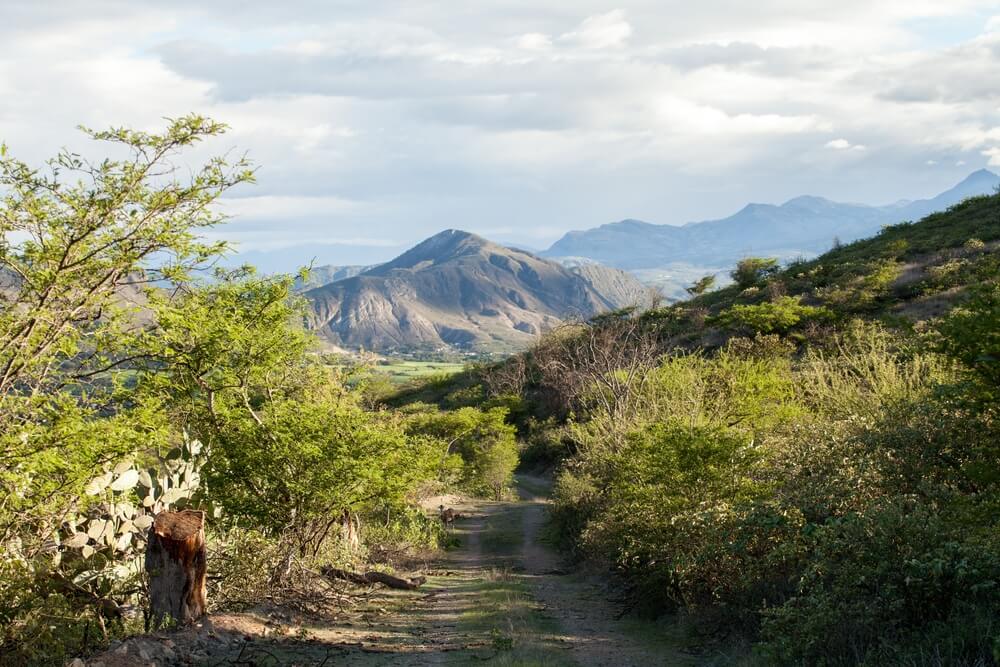
Some people choose to cross at La Balsa Border. Due to its more isolated location, it is typically less frequented. So what does that mean?
Fewer queues and an overall faster process. The picturesque views are well worth it too.
Open/Hours/Availability:
Monday to Friday, 8 am until 8 pm.
Step one: Travel from Loja to Zumba
Even if Loja is often overlooked by tourists, it is a charming area to start your journey into Peru.
From there, you can take a bus to the town of Zumba, which will take you between five to six hours.
On your drive, you will see banana, cacao and coffee plantations amongst the lush mountainside.
Step two: Transfer in a ranchera from Zumba to La Balsa
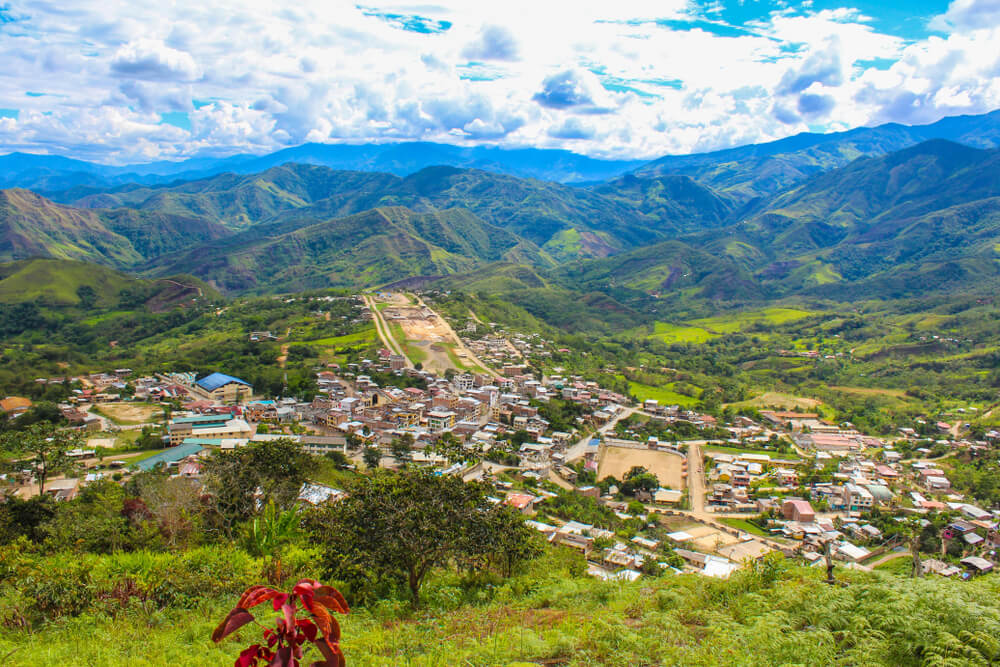
You are not too far from the border now, which is great news!
While this town is super quiet, if you need to spend the night, there are a few basic places to stay. As well as spots to eat and drink.
From Zumba, you will need to ride in a ranchera (trucks that have been converted to buses by adding wooden benches).
A small warning, this part of the journey may not be comfortable. Don’t expect seatbelts or doors.
The views, however, are breathtaking.
This step of the journey takes about 1 hour 45 minutes, and there are two departure times for the rancheras—8 am and 2 pm.
Step three: Arrive at the border
Once you are at the border, you must prepare your documents for the officials on duty.
Make your way to the Ecuador immigration office to get stamped out of the country. While it is a straightforward process, the wait time can still take an hour.
Step four: Enter Peru

Now head across the bridge to where the Peru customs and immigration offices are.
The officials will check your vaccination card and, once again, check your passport.
Step five: Onward transfer into Peru
You are now standing in Peru.
It’s time to take a taxi to San Ignacio, which takes 1 hour and 10 minutes.
Pro Tip: The taxi won’t leave until it has four people, so be patient.
Once you reach San Ignacio, head to the station to catch a combi (14-person minivan) to Jaen. Again, you will need to wait until it’s full, but it is a common route, so you shouldn’t have to wait long.
Otherwise, if you are exhausted, San Ignacio is not a small town. You will find plenty of places to stay, an ATM and a few spots to grab something to eat after a long day.
Now Let’s Reverse it: It’s Time to Depart Peru to Ecuador.
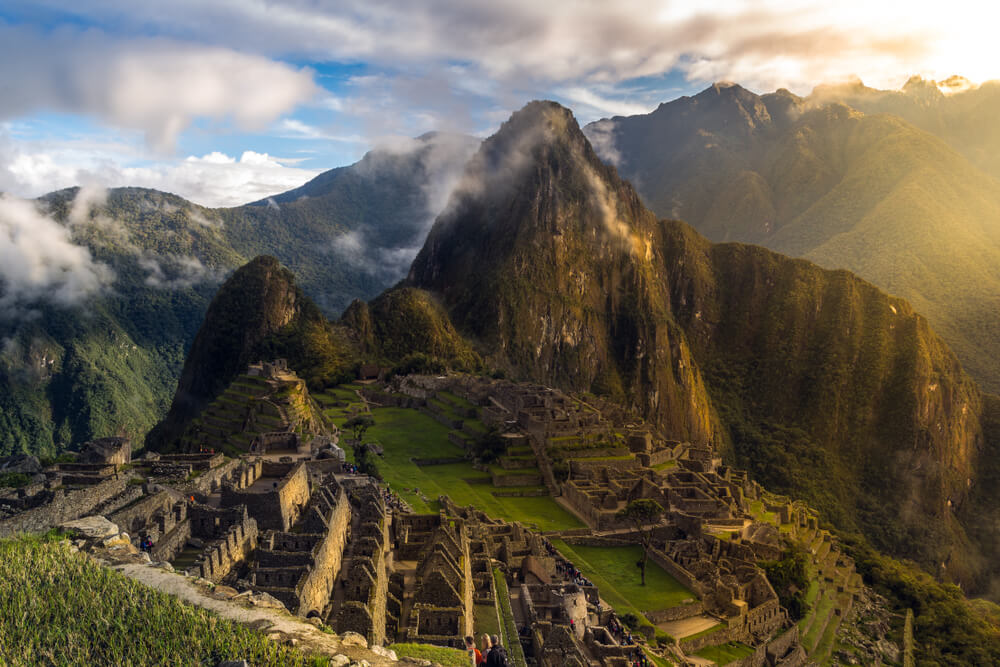
Now, a lot of the information provided above will be the same process if you are departing Peru to Ecuador.
Maybe you have visited Machu Picchu, Cusco and Lake Titicaca, so it’s time to make your way to Ecuador to visit Cuenca, Guayaquil, El Cajas National Park and, of course, the beautiful Galapagos Islands.
Border One: Aguas Verdes Border
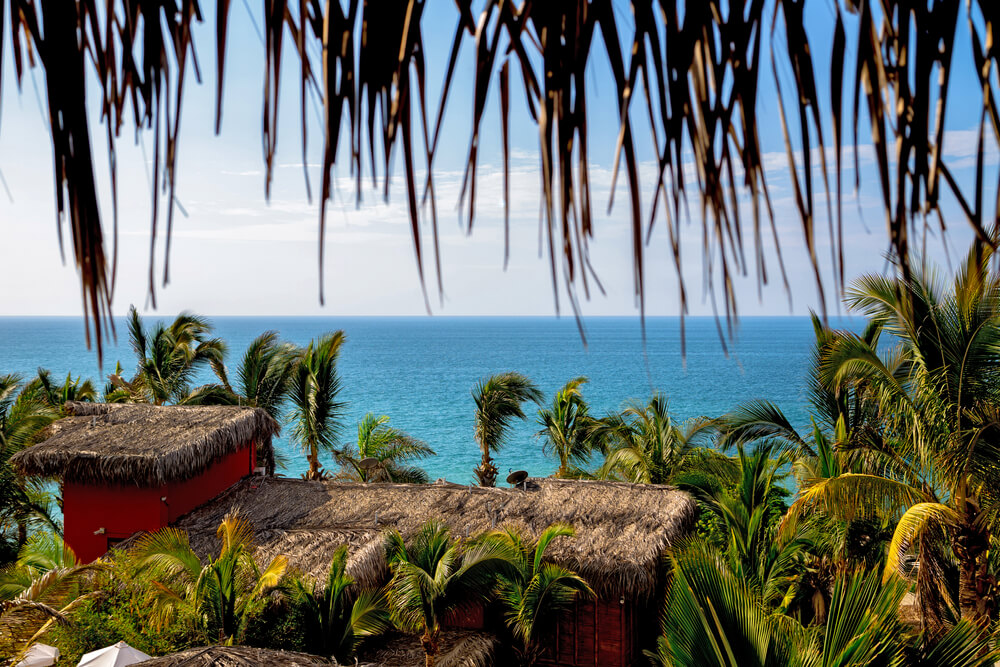
The convenience of crossing the border at this coastal location is that you can easily reach most places in Ecuador from there.
Open/Hours/Availability:
24 hours, 7 days a week, but closed on national holidays.
Step one: Book an international transfer from a city in Peru
This is by far the most convenient option.
Depending on where your travels have taken you, there are several places where your international transfer could depart from.
From Tumbes to Guayaquil, a minivan or car will take you close to five hours.
You will have to plan for extra time from cities further north. From Piura to Guayaquil, it will take 9 hours, whereas from Chiclayo to Guayaquil, it will take 12 hours and 30 minutes.
Step two: Arrive at the border

When you have a direct transfer, the journey becomes much easier.
Just get out of the vehicle and head to the immigration office.
First, you will receive a health check where your temperature will be taken. It’s not uncommon to receive a piece of paper with your temperature on it.
If this happens, keep this piece of paper on you.
Afterward, you must present your passport and receive a stamp to show your departure from Peru.
The next step is to move to the Ecuador counter, where you will receive another stamp to show your entry into the country. This is where you will hand over your temperature info.
Step three: Transfer to your final destination
You have successfully crossed from Peru to Ecuador. Congratulations!
Once you have cleared immigration, you will jump back into the same vehicle. Yes, that means no waiting around for a taxi or strolling through no-mans land.
After a few more hours in the vehicle, you will arrive in Guayaquil, where you can start your travels through Ecuador.
Border Two: La Tina Border
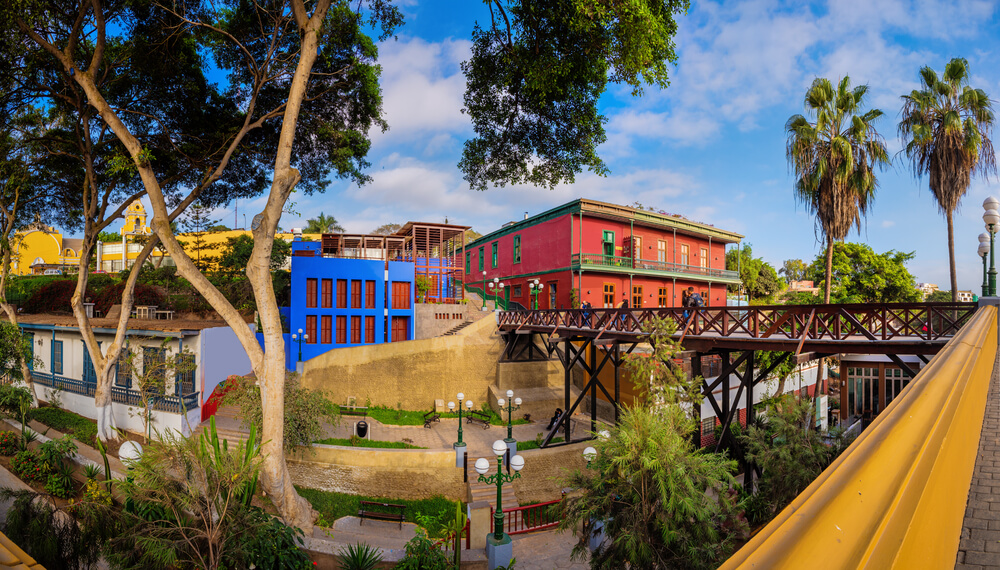
This mountain route is another option for those traveling from Lima, Chiclayo, Trujillo and Piura.
Yes, some of these locations are starting points for the Aguas Verdes border. So it’s up to you which route you choose to take.
Step one: Travel from one of the Peruvian towns
As Peru has a shocking number of beautiful areas, your starting point could be anywhere.
However, getting yourself to the town of Sullana is key. From there, you can take the local bus to the border.
Step two: Cross the border

Now that you have arrived at the border, it’s time to get an exit stamp out of Peru and enter Ecuador.
Step three: From the border town of Macará, make your way to Loja
The hard part is done. Now it’s time to sit back and relax on a four-hour bus bound for Loja.
With any of the buses, it’s always best to call the company in advance to check the departure times. They’ve been known to change on occasion.
Step four: The final leg—Loja to Cuenca
If you are tired from a long day of travel, why not book a car transfer from Loja to Cuenca? It is a six-hour journey, so enjoy the peace and quiet while taking your first glimpse of Ecuador.
Otherwise, you always have the option to book a seat on the bus.
Now it is time to start exploring the country.
Border Three: La Balsa Border
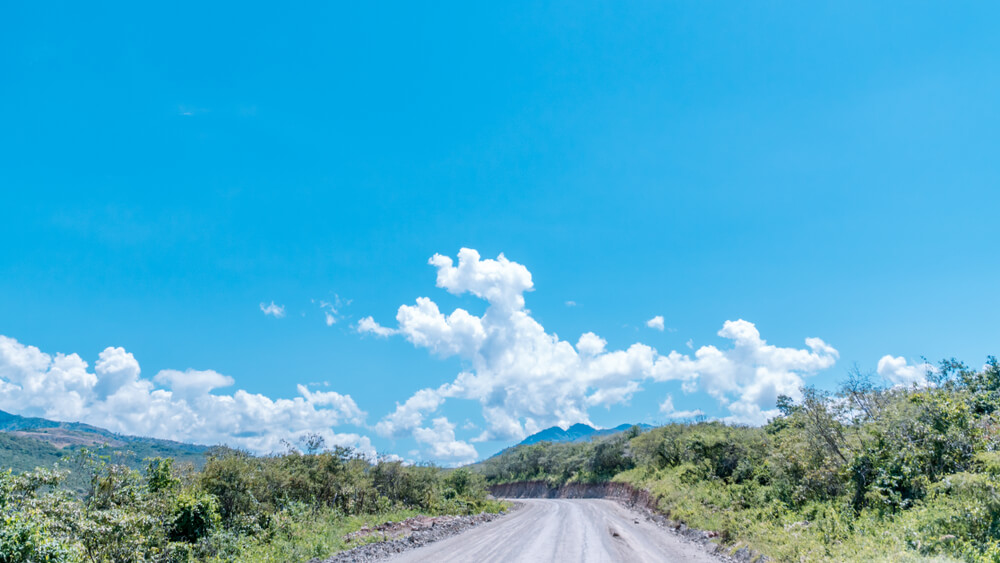
If you like to slow travel, then cross at the La Balsa Border. It is often considered the longest route of the three border locations.
Open/Hours/Availability:
Monday to Friday, 8 am until 8 pm.
Step one: Find your way to the town of San Ignacio
Make your way to San Ignacio.
A lot of people head to Jaen first, and from there, catch a 14-seat combi to San Ignacio. However, the timings can be unreliable as the vehicle must be full before departing.
Pro Tip: If you arrive in San Ignacio late in the evening, don’t stress. There are plenty of places to stay so you can rest up before making your way to the border in the morning.
Step two: Take a taxi to the border
A taxi from San Ignacio to the border takes just over 1 hour. It is the easiest and most convenient option.
Step three: Arrive at the border and make your way to Ecuador
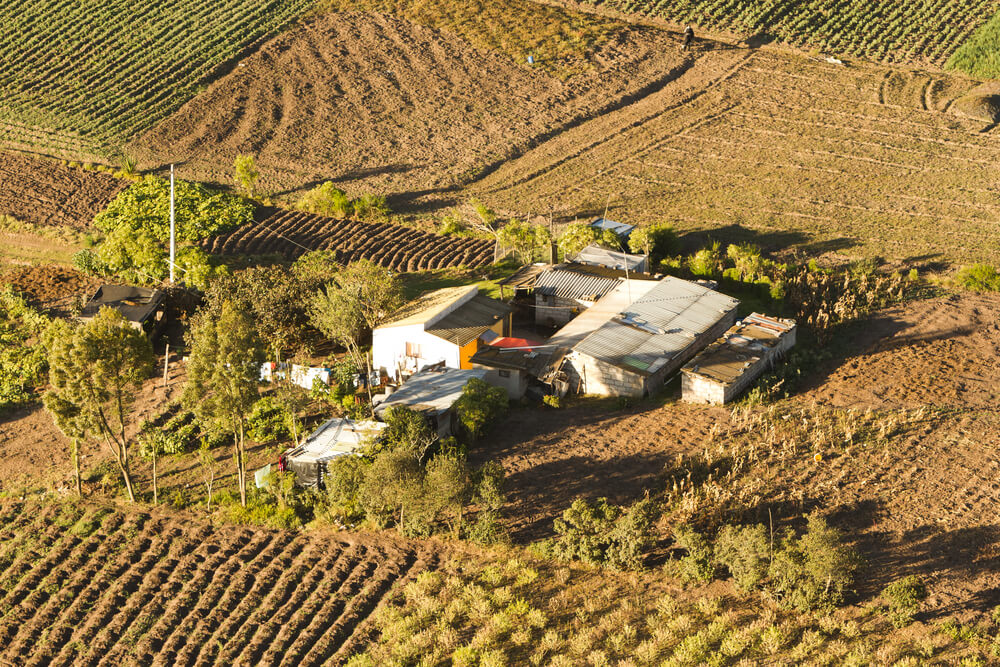
You have arrived at the border. Here you will need to receive an exit stamp out of Peru and pass through the immigration office for Ecuador.
For more details, see the La Balsa crossing information above.
Step four: You are in Ecuador. Travel from La Balsa to Zumba
After clearing through immigration, travel in a ranchera to Zumba.
This is an experience of its own and will surely call for a few laughs as you sit in the converted bus.
Just hold on tight, as there are no seatbelts.
Step five: The finale—Zumba to Loja
Spending a night in Loja is not a bad idea at all. While it may not be on your must-do list, it is a quaint area to rest up and refuel.
To get there, take a bus from Loja to Zumba.
This journey will take between five to six hours.
Map of the Ecuador-Peru Border
Take a peek at this map so you can see the different locations of the border crossings and what’s nearby.
Ecuador Peru Border Crossing Wrap-Up
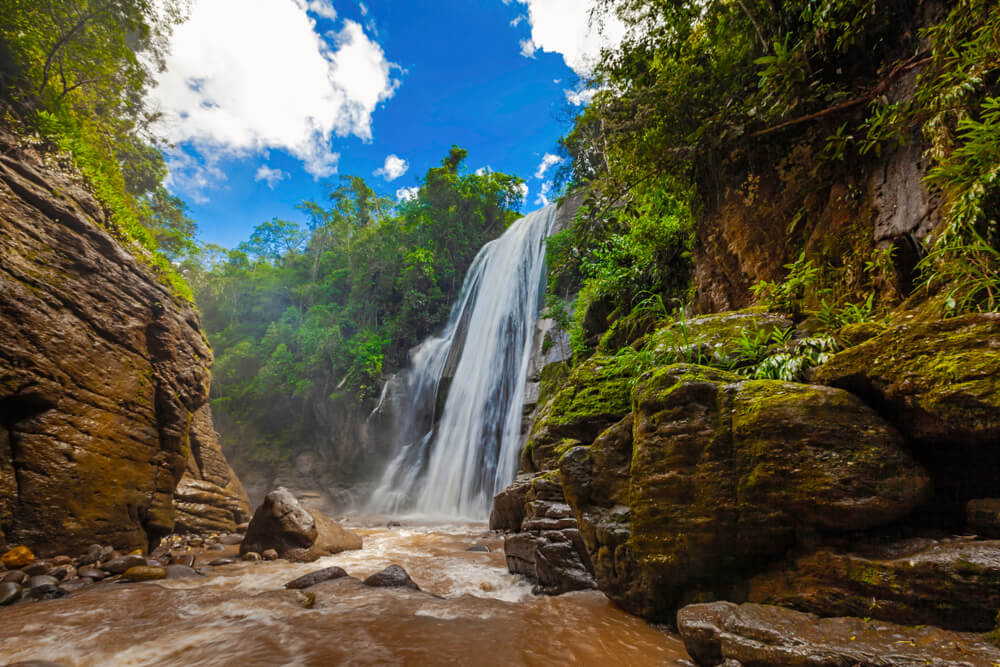
It doesn’t matter which crossing you go for. These two countries are incredible and easy to travel. Check out all our Ecuador and Peru routes so you are ready for the next adventure.
If the plan is to continue south, read our blog about crossing the Peru-Bolivia border next.
FAQ
You should not have to pay anything when crossing the Aguas Verdes, La Tina or La Balsa border. Most nationalities receive a 90-day visa on arrival into both Ecuador and Peru. Depending on the route that you take, the price of the buses/taxis varies.
On arrival, you will receive a 90-day visa (for most nationalities) in both Ecuador and Peru. If you wish to stay longer, you can extend your visa.
While it is unlikely that you will need to show proof of exit on arrival, exit and entry regulations can change at short notice. It is best to refer to the latest information on the embassy website.
Crossing the border between Ecuador and Peru (and vice versa) is a popular route. As issues can occur from time to time, it is always advisable to be cautious of your surroundings and ensure that the mode of transportation to/from the border is reputable.


